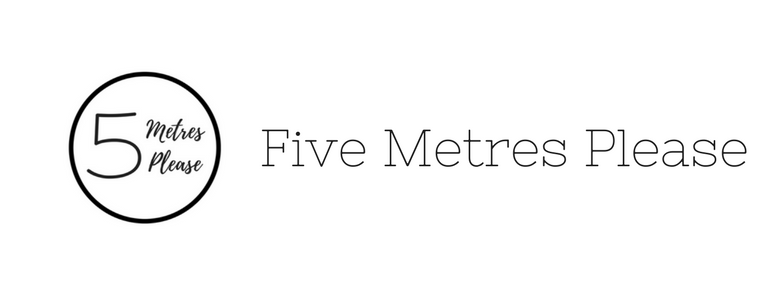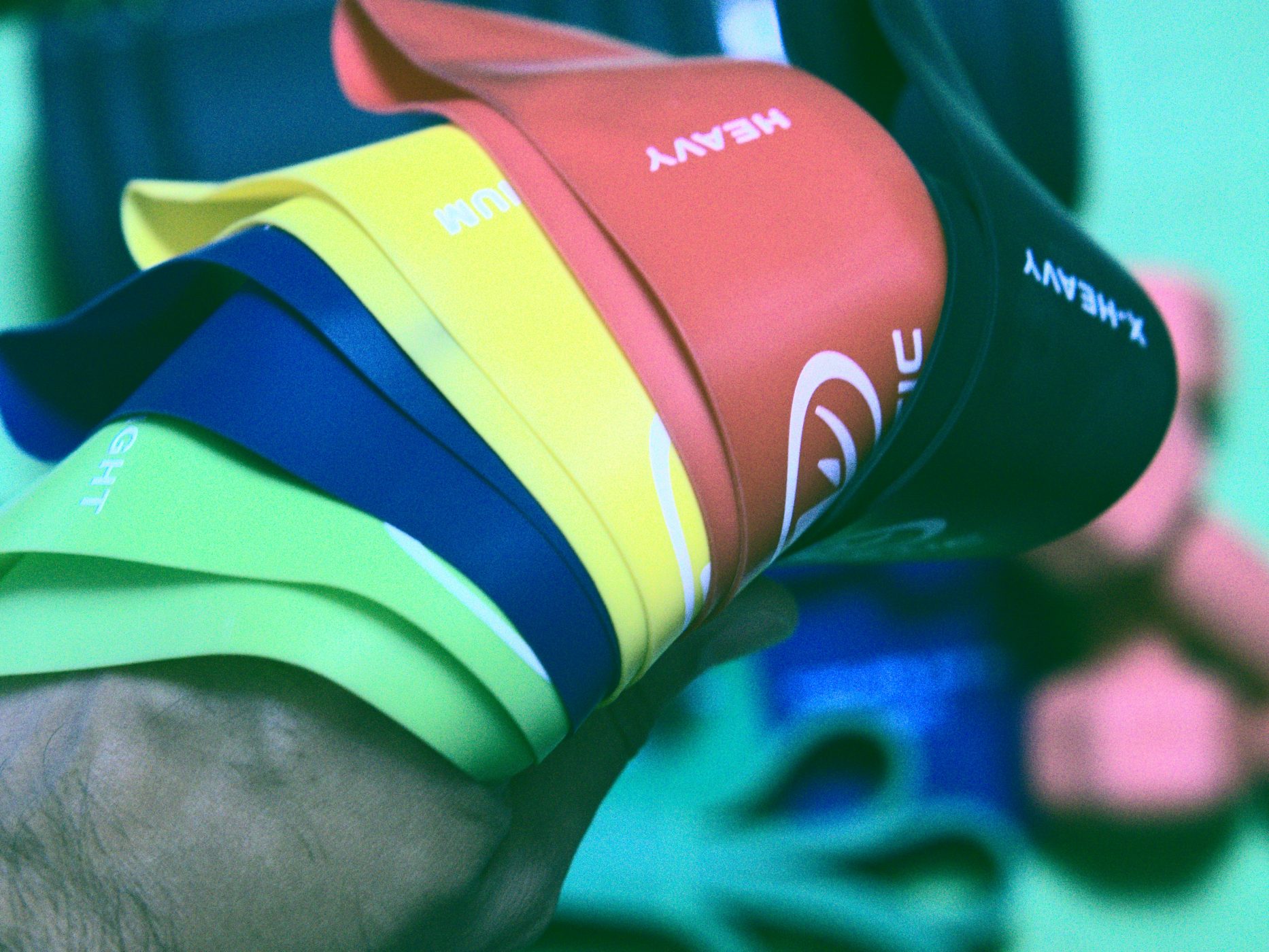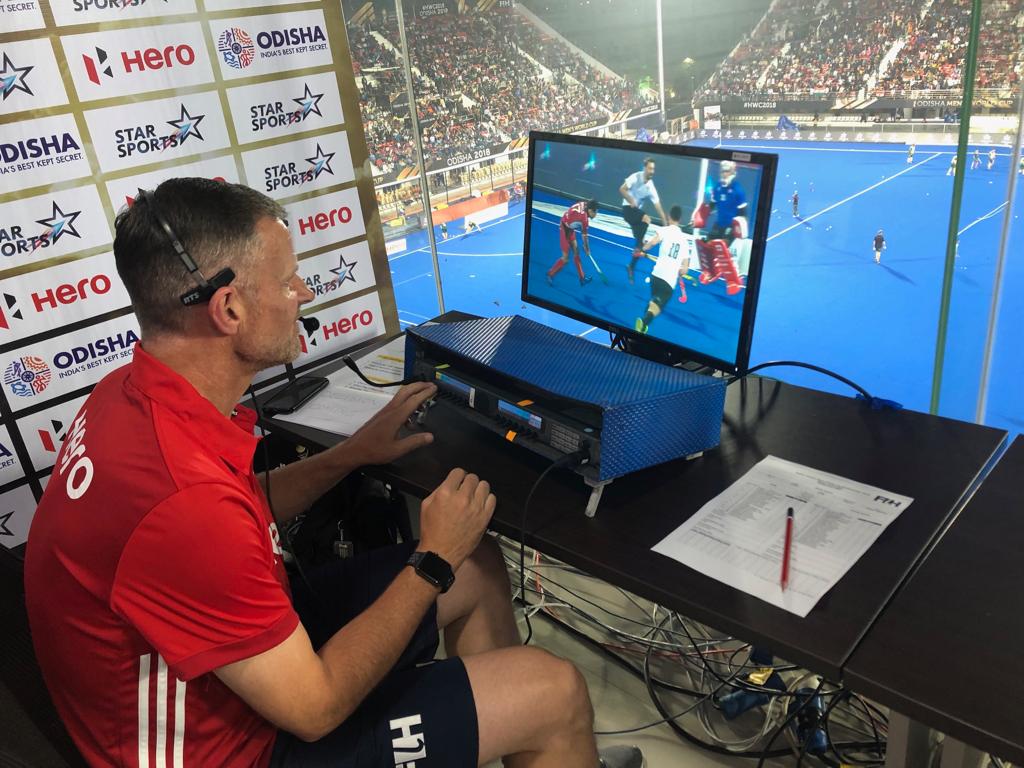How to Impress Your Umpire Manager
Ahhhh, the enigma that is the Umpire Manager (UM)… they are one of the most important officials at a tournament, but what do they actually do? How do you impress one as an umpire? What even IS an umpire manager?
These might be some questions you have if you’re off to your first tournament. Hell, they might even be some questions you have if you’ve been to a few tournaments. And if you’re starting down your own path as a UM, well… you need all the help you can get.
You might think of the umpire manager as someone who swans around watching hockey for a few weeks, basically on a holiday as they “manage” umpires. Ha! What a dream! Where do I sign up?!

But, I think you’d be surprised to find out that this really is NOT the case. Being an Umpire Manager is bloody. hard. work. There’s lots involved and you rarely get much down time. They’re one of the most important officials at the tournament for a reason – they’ve got to make sure it all runs as smoothly as possible from the umpiring side of things. And there’s a lot involved to make this happen!
So, to dissect all the ins and outs of the Umpire Manager, I’ve got a treat for you today! World Panel Umpire Manager Minka Woolley is going to talk us through the role of a UM, how to become one, and most importantly… how to impress yours!
How to Impress Your Umpire Manager
With Minka Woolley

Firstly, a little about Minka…
She started her career as an international umpire in 1995 and was told that she was too old, at 34, to go on any further. A lucky break in 1999, when another umpire had to pull out of a tournament in England, saw Minka’s career suddenly take a different path and she then went on to officiate many top level tournaments, including 2 Olympics (2004, 2008) and a World Cup (2006).
After retiring from international umpiring in 2008 at the Beijing Olympics, Minka began her international Umpire Managing career in 2009 with a FIH traineeship at the Oceania Cup in New Zealand under the watchful eye of fellow FIH Umpire Manager Craig Gribble.
She has since gone on to be the Umpire Manager at 2 Olympics (London 2012, Rio 2016), 2 Commonwealth Games (Glasgow 2014, Gold Coast 2018) and most recently the 2018 Men’s World Cup (the first female UM at this level men’s tournament).
Outside of international level, Minka has been the UM of the Australian Hockey League and works closely with local umpires in her hometown of Devonport, Tasmania. She is also a school teacher in her “real life”.
Can you explain what the role of an Umpire Manager (UM) is?
What do they do before, during and after a tournament?
Before I jump in, I have to be honest and say that the role of UM is not as much fun as being an umpire… it is actually a whole lot of work! But it brings a different kind of joy and has allowed me to stay in touch with the people I have enjoyed sharing my whole hockey journey with (i.e. the special people that make up the hockey family).
Before the tournament
Before the tournament is about organisation – we do all the lead in work in terms of connecting with umpires, the Tournament Director (TD), organising officials and the hosting association.
For international tournaments normally we are appointed anywhere between 12-18 months before a tournament and for the bigger tournaments, like the Commonwealth Games, World Cup and Olympics, there are many protocols that need to be followed so organisation and contact begins early for accreditations, visas, legal requirements (re: logos vs. sponsorship) and other official processes.
Before a tournament we do the following (these things are becoming more and more common at continental and national level championships too!):
- We set up a Facebook page with our umpires to ensure regular contact. On these pages we send newsletters and set up video clips for discussion to ensure that all umpires have a clear understanding of how we are going to interpret rules.
- In the lead up to the men’s World Cup we had skype contact with the umpires to chat about their preparation and progress in both February and June, which was particularly useful for me as I had not met several of the umpires before.
- Preparation forms are provided to umpires and they update these in the lead up to the tournament. This gives us a good idea about what type of preparation they are doing, and also whether there are any injuries or other issues.
- Preparation these days is far more than physical fitness – many umpires are also adopting sports psychologists and eye/brain training to enhance their preparation.
- FIH has developed a series of common briefings for umpires, coaches and video umpires. We use these common briefings and add our own slant on things (usually pictures, videos, etc.) to reinforce the key points. Umpires also receive the tournament briefing in advance to ensure they fully understand the tournament commitments.
- Flights, accommodation, transport, etc. are provided for us to ensure our team is well supported in the early stages of a tournament. It can be quite daunting arriving in a different city or foreign country, particularly for the first time or for your first tournament, and so we do our best to ensure someone is there to pick them up on arrival to reduce any unnecessary stress.

During the tournament
In the early days of the tournament, before the actual games start, we are heavily involved with briefings which include:
- Tournament Briefing, provided by the TD
- Umpire Briefing, delivered by the UM
- Video Umpire Briefing if required, delivered by the VU coach (if one is appointed)
- Coaches’ briefing, which is also delivered by the UMs
The early days are definitely very busy ones! During this time we also do a range of activities to build our team.
Once the games start, we:
- make sure transport, ground facilities, etc. are available.
- allocate umpires for each match, including the reserve umpire and, if relevant, a video umpire.
- log match videos with appropriate times and/or clips for the umpire to review before feedback sessions the next day.
- Have a feedback session with the umpires about their game.
- The umpires then add to their feedback forms and we add our own feedback as well.
The need for this is increasing as the end of tournament feedback forms now do not allow for comments, so we really want our umpires to go away with a real sense of their whole tournament so they have something to go back to when they prepare for their next tournament.
During the tournament we have regular discussions with the Tournament Director about any aspects of games/regulations, etc. that have occurred.
We also have regular contact with coaches who sometimes supply video clips of issues or at other times, they are keen to discuss various umpiring issues. On the whole, these are positive discussions. I believe coaches have come a long way in terms of their ‘delivery of a message’ and this has made these discussions much more productive and positive.
This is not to say that, at times the coaches and managers are not unhappy….they definitely are… we know that titles, sponsorship, rankings and jobs are on the line. We never forget this and that is why we are always aiming to improve our umpires and umpiring. This is not always an easy job given that many umpires take their annual leave or leave without pay to be at tournaments. At the men’s World Cup, the team was away for 3.5 weeks and some had new babies or babies on the way, some worked while we were in India…
Hockey may have become more professional but the officiating team has not been give the same priority and this is always an issue. Our umpires and officials do an amazing job with very few resources!

Towards the end of the tournament…
We are very aware of the importance of letting umpires know when their tournament is likely to be over, or what to expect for the tail-end of the tournament.
It is always a challenge telling umpires that their tournament is over, but experience has taught me that this is a very important part of the UM role – communication is key, even if the message is not what the umpire wants to hear. Of course we hope that all umpires aspire for the final but, as we all know, only two people can do this, so there will always be disappointments along the way. This is definitely the part I dislike the most because the last thing I want is for people to be unhappy, disappointed or angry.
Hopefully as I have progressed as a UM, I have learnt to deal with this better. This aspect is always a greater challenge at bigger tournaments, such as World Cups and Olympics at international level, or even the top National league in your country if you have a group of experienced umpires, because when you have the best umpires in the world/country, they all expect to get the big games – totally understandable, but logistically impossible…!
After the tournament
At the conclusion of a tournament we meet with each of the umpires and TD to give out reports. We try to give these out in advance of the meeting so that umpires have a chance to review and then ask relevant questions at our meeting.
At these meetings we also encourage umpires to provide feedback to the UMs about aspects they would like to be dealt with differently in the future. Just like the umpires, we are on a road to progress. Do we ever get there? No. There are always ways we can be better… but we try to learn and improve all the time, just like the umpires.
We also have to do a tournament report which covers virtually every aspect of the tournament from appointments, right through to conclusion. This can also take a good deal of time depending on what has happened throughout the tournament.

How is the role of a tournament Umpire Manager different from the role of a regional/association umpire manager or an Umpire Coach throughout the season?
At regional level we get to work with young umpires who are learning their craft – the focus is slightly different. You focus on things like whistle blowing, positioning, body language, game management, understanding the rules, etc.
It is at this level where I feel a UM or Umpire Coach can have the most influence. It is a lot of fun, although it still takes a lot of time and commitment.
What are UMs looking for at different levels
(U13 vs. national vs. international)?
The same thing at every tournament… umpires who:
- Have the ability to manage people and game situations in a positive way.
- Who are willing to accept they will make mistakes but who do their very best to not make the same mistake again and again
- Most importantly – they are there for the team and not just themselves (i.e. they don’t just come to do the final).

How can umpires “impress” their UMs?
What are UMs looking for?
I always say to my umpires don’t give people a reason not to like your style. This means basics such as:
- Respond to emails, contribute to the facebook group, meet deadlines.
- Be fit – meeting the requirements according to the level of the tournament. Actually, meeting beyond the level – just getting there is no longer enough. Being physically fit for the modern game is not about being able to run a marathon but more about having the fast feet, balance, core strength (anyone who knows me will smile at this because I go on about this all the time….) to be in position and steady at critical times – usually the circle. (So many video referrals occur when the umpire is on the move or when the ball is in very close proximity to where the umpire is standing).
- Eye/brain training is key to modern preparation, as is mental preparation – including coping with tournament situations, appointments, etc.
- Be a positive team member – consider the needs of others and not just yourself. Go out of your way to ensure everyone is ‘on board’.
What are some key pieces of advice you would give to umpires at any tournament?
All of the preceding info…haha! Plus:
- Be yourself – You do not have to be a clone of someone else, but always be willing to adapt your style if it is not quite meeting the requirements of a game/tournament.
- Be prepared to make mistakes, take on board feedback and come back out the next day with a ‘better best’ game.

What makes a good UM?
Your top tips for aspiring UMs?
I am definitely still learning about what it takes to be a good UM. Every tournament has a different team and each time their needs change.
Being organised, willing to listen and take on board feedback and make changes mid-tournament if required are all important. I guess in the end we can just be ourselves, and if that works, that’s great!
How can people become a UM?
What is the pathway to national or even international level?
My pathway to being a UM came directly from being an umpire, but at a national level a potential UM can nominate through local, state and national tournaments.
The best tip would be to express your interest to your local association and see what training programs are in place, or what you have to do to be recommended to the national association.
Internationally, FIH has a traineeship program which potential UMs can apply for via their website.

Experience at the Men’s World Cup
Finally, can you tell us a little about your experience in India at the Men’s World Cup? How was the atmosphere in a country where hockey is the national sport? How was the experience different from a women’s tournament?
India and the Men’s WC – what can I say? When I received my appointment via Facebook on December 19th 2018, I must admit I felt sick. I had already been appointed as UM to the Commonwealth Games earlier in the year, so I didn’t even consider another appointment was on the cards, let alone to a men’s tournament!
Normally I press reply straight away to FIH, but this time I definitely took a few days to decide – probably to get the confidence to believe that I could actually do the job (i.e. be the first woman to be a UM at a Men’s WC). I was very worried about what the ‘boys’ would think, but in the end I thought this opportunity to be the ‘first’ will only come along once, and I would only regret it if I didn’t take on board the challenge.
I was very lucky to be appointed as UM along with Philip Schellekens from the Netherlands. He had been UM at the 2010 men’s WC plus the London Olympics in 2012, so had plenty of experience and knowledge which would prove to be invaluable again and again throughout both the preparation phase and during the tournament.
Our Video Umpire coach appointments changed a couple of times in the lead up and I was very pleased when finally, Carol Metchette from Ireland accepted the appointment. Carol and I had umpired together and had also been at tournaments where I was the UM, so I felt that the 3 of us would be a good blend.

I doubt that I will ever experience anything again like what Bhubaneswar turned on for us at the Odisha Men’s WC. From the moment we arrived at the airport we could see the whole city had embraced the hockey spirit. There were billboards everywhere advertising the tournament, walls along the highway were painted in hockey sticks and players. The pylons of one huge bridge had the faces of the captains painted on it – they were amazing.
The people were certainly keen to be part of the whole hockey experience. Everywhere we went, people wanted to take selfies with us – we almost felt famous…ha!!
The Opening Ceremony was more like an Olympics – full of tradition and fanfare and some great Bollywood type music and singing. The ground itself had a capacity of nearly 18,000 people and on many days it was a full house. The atmosphere was brilliant and, of course, during the Indian matches it was even better. The noise was unbelievable!
Was there anything missing? – I would love to have seen Australia make the final. Their comeback from 2-0 down in the semi final was very exciting, with an Eddie Ockendon interception on the 23m line setting up a great equaliser which forced a shoot out. Sadly, the Netherlands went on to win. I also would love to have seen India make it through to the final or at least a semi – that would have been the icing on the cake for the tournament, the spectators and the organisers, but since they were in the same side of the pool as the Netherlands and Australia, this was always going to be difficult.
The quarter final match, India v Netherlands was perhaps the match of the tournament in terms of atmosphere with 18,000 spectators out in force and the significant majority were definitely going for India…. What a game!!
Australia not making the final created the opportunity for Adam Kearns to umpire his Golden Whistle 100th international match at a WC final – a memorable event for him, I am sure.

It was an incredibly busy tournament for the UMs and Video Umpire coach but we did get to see a little bit of the lifestyle and culture in the couple of hours after briefings in the morning and before we had to head back out to the ground in the afternoon. Bhubaneswar is known as the Temple City and for obvious reasons – some amazing history.
The colour, noise and excitement of the Indian culture and people combined with an excellent umpiring/official’s team provided the background for a very memorable tournament and one I will always treasure. I am very lucky that FIH allowed me the opportunity to be the first woman to share the UM role at a men’s WC.

So, there you have it folks! Everything you need to know about what an Umpire Manager does, how to impress them and how to become one, along with some great insights into the management that goes on behind-the-scenes at a major international tournament! Many thanks to Minka for sharing her experiences with us!
If you think other people might find this useful, please share it around through social media or by using the buttons below 🙂 Sign up for the newsletter to get new posts delivered straight to your inbox, and follow me on Facebook and Instagram for extra tips, tricks and behind the scenes banter!
In terms of other tips on how to improve you umpiring in general, check out these posts on What Makes a Great Umpire, Controlling Your Emotions, Stepping Up to the Big Games and more on the Development page! You can also have a look at the FIH pathway for international umpires.




You must be logged in to post a comment.